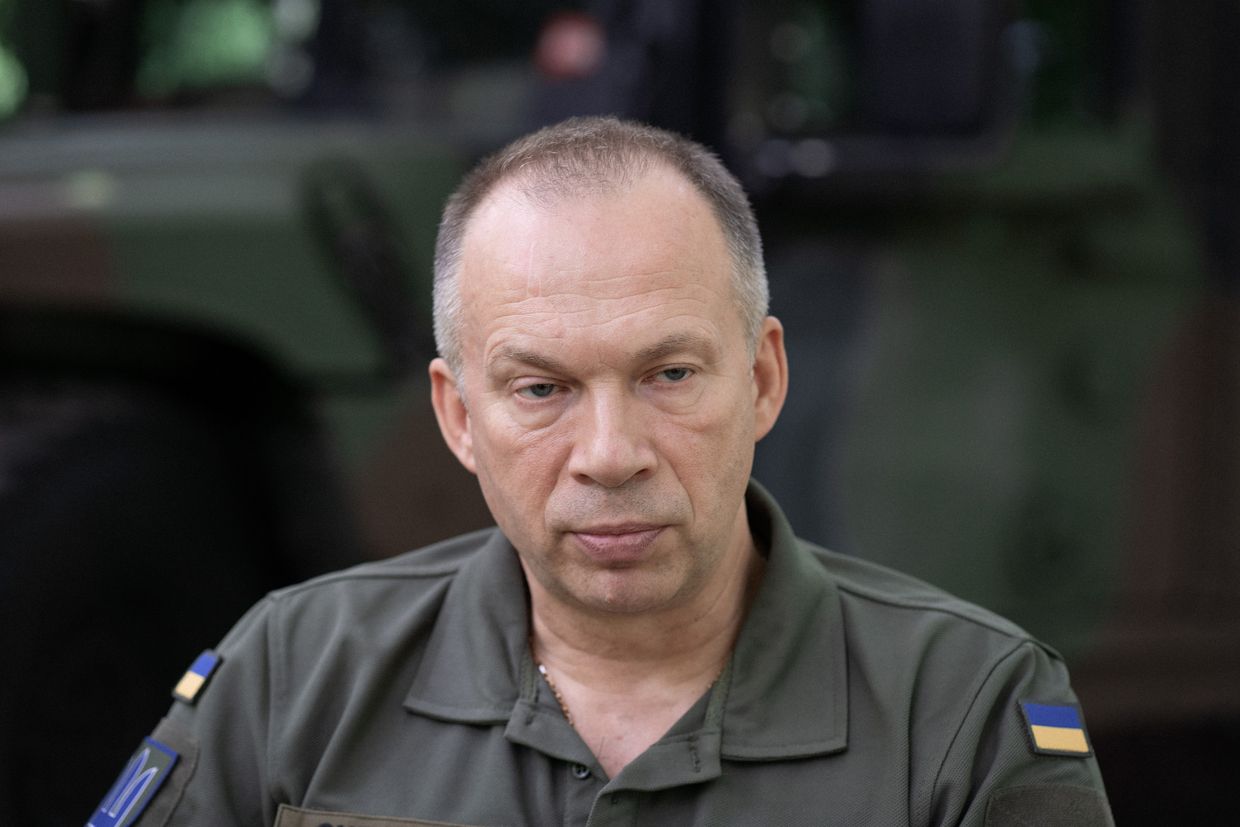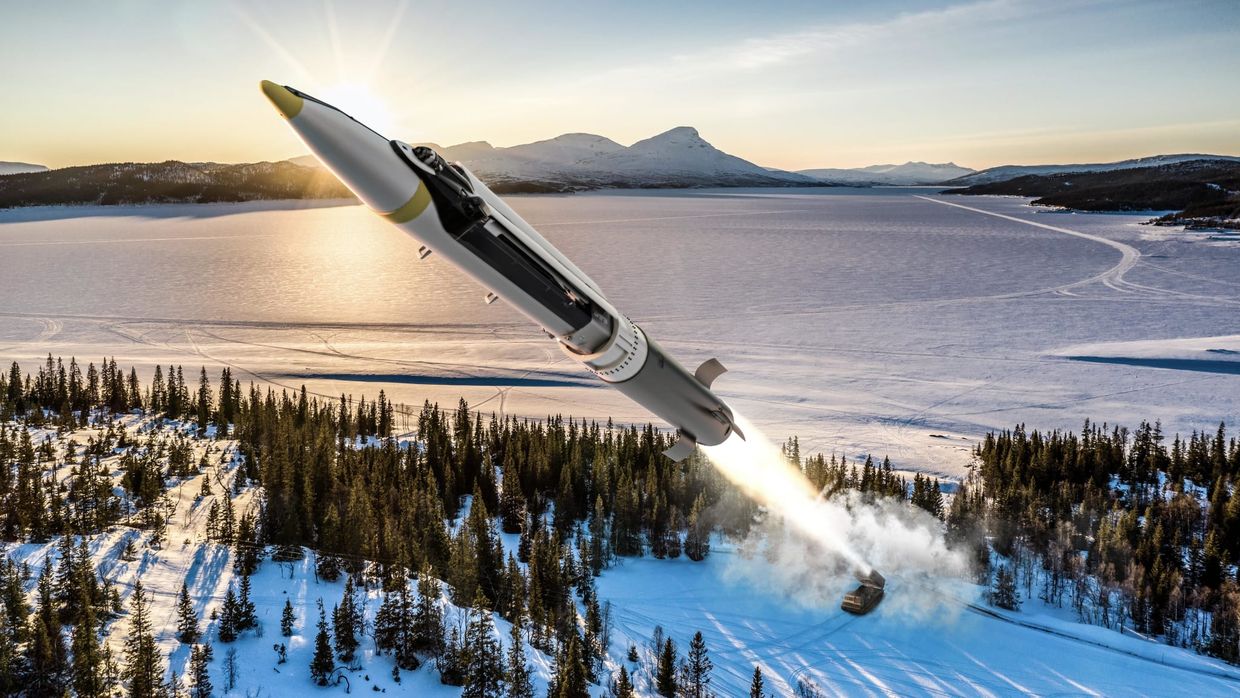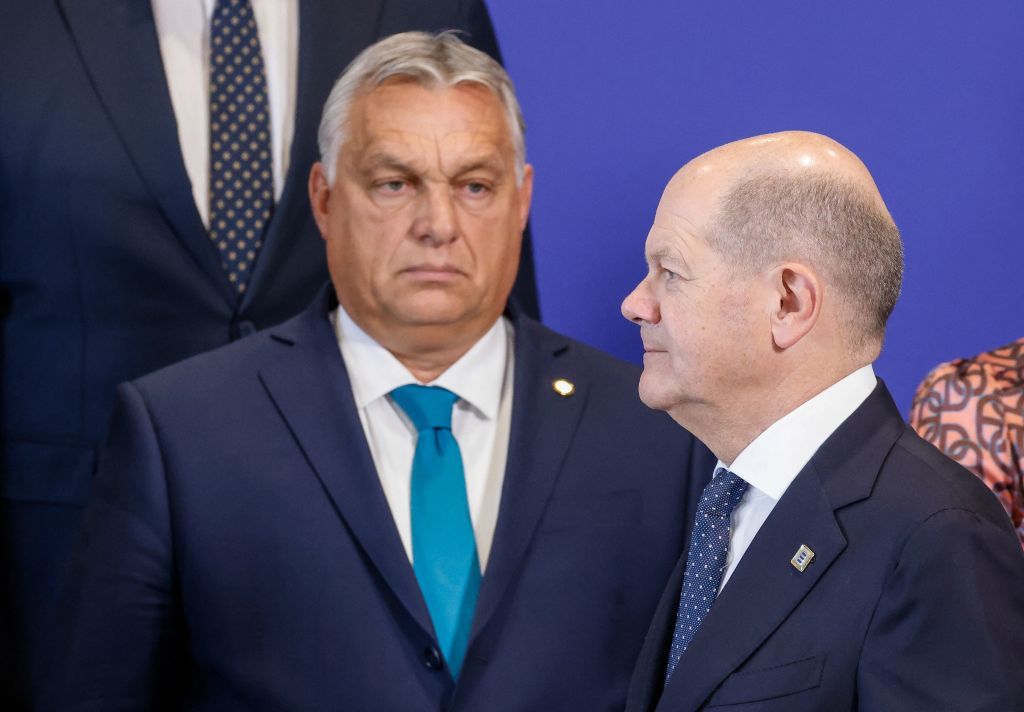Ukraine war latest: New Armed Forces commander settles in, lays down main priorities

Key developments on Feb. 9:
- Finland approves $200 million aid package for Ukraine, Norway pledges more NASAMS
- Syrskyi reveals his priorities as Ukraine’s new chief commander, meets with Umerov
- US House members express 'overwhelming' support for Ukraine aid during visit to Kyiv
- Russian attack in Sumy Oblast kills 3, injures 4
- Italy approves 1-year extension of military aid for Ukraine
Defense Minister Rustem Umerov held his first meeting with General Oleksandr Syrskyi after his appointment as Ukraine's new commander-in-chief to discuss plans for the country's Armed Forces in 2024, the Defense Ministry reported on Feb. 9.
A day before, President Volodymyr Zelensky dismissed General Valerii Zaluzhnyi following months of speculation about a rift in Ukraine's leadership.
Zaluzhnyi has led the country's military since July 2021.
Syrskyi had previously served as the head of Ukraine's Ground Forces and commanded the Khortytsia Operational and Strategic Group fighting in eastern Ukraine.
"An extremely important issue is establishing the logistics system and timely addressing the necessary needs of the military. The focus is on an effective system of rotations and rest for units," Umerov said after the meeting.
Umerov and Syrskyi reportedly discussed improving the quality of military training, addressing the needs of training centers, and preparing new instructors.
Their meeting also focused on a newly created branch of Ukraine's Armed Forces dedicated to drones, according to the ministry.
Earlier on Feb. 9, Syrskyi laid out his priorities in managing the all-out war, which will soon enter its third year.
Syrskyi said one of his primary tasks would be "a clear and detailed planning" for all military administration bodies, taking into account the needs of front-line units in new weaponry sent by allies.
"The fastest and most rational distribution and delivery of everything necessary for combat units remains the main task of military logistics," Syrskyi said on Telegram.
This statement echoes Zelensky's words that he expects the new military leadership to solve problems with logistics and conduct a "fair redistribution" of Western-provided arms "in favor of the zero line."
Syrskyi said in his Telegram post that "the life and health of personnel have always been the main value of the Ukrainian army."
"Therefore, maintaining a balance between the performance of combat tasks, units' recovery, and the intensification of training remains more relevant than ever."
As another priority for Ukraine fighting off Russia's full-scale invasion, Syrskyi named "introducing new technical solutions and scaling successful experience," such as the use of unmanned systems and modern tools of electronic warfare.
Finland approves $200 million aid package for Ukraine, Norway pledges more NASAMS
Finland approved its 22nd defense aid package to Ukraine worth around 190 million euros ($205 million), the Finnish Defense Ministry announced on Feb. 9.
The Finnish president green lighted the package on Feb. 9 based on the government's proposal. This brings the total military aid provided to Ukraine by the Nordic country to 1.8 billion euros ($1.94 billion).
As with its previous aid packages, Helsinki kept most of the details about the content and delivery secret due to security reasons.
The Finnish Defense Ministry revealed, however, that the tranche includes products that have been purchased from domestic industry with separate funding of 30 million euros ($32.3 million) set aside to support Ukraine.
"Nationally and more broadly, we need new ways to support Ukraine in the long term. We are currently preparing a long-term plan for support to Ukraine," said Finnish Defense Minister Antti Hakkanen.
The government in another Nordic country, Norway, announced on Feb. 9 that it had asked the parliament to deliver an additional 10 Norwegian Advanced Surface-to-Air Missile Systems (NASAMS) and four fire control centers to Ukraine.
NASAMS is a ground-based air defense system capable of firing a variety of different anti-air missiles.
Norway pledged NASAMS air defense equipment worth $30.5 million in December 2023, some of which was to be sent from current stocks, while the rest was ordered to be commissioned for later delivery.
Oslo delivered its first two NASAMS systems to Ukraine in the spring of 2023.
"The Norwegian NASAMS system saves Ukrainian lives and prevents the destruction of buildings and infrastructure," said Norwegian Defense Minister Bjoern Arild Gram.
"The Russian missile and drone attacks are extensive and brutal, so air defense is absolutely decisive for Ukraine. At the same time, I am concerned that we reacquire air defenses for our own defense as quickly as possible," he added.
The delivery is done in addition to Norway replenishing equipment already donated to Ukraine. The total investment is 3.45 billion Norwegian kroner ($326 million). Before Christmas 2023, Norway placed an order of 12 billion Norwegian kroner ($1.13 billion) to modernize air defense capabilities and replace those sent to Ukraine.
Previously, Ukraine received additional NASAMS systems also from Lithuania and the U.S.

US House members express 'overwhelming' support for Ukraine aid during visit to Kyiv
Four members of the U.S. House of Representatives arrived in Ukraine on Feb. 9 to meet President Volodymyr Zelensky and assure Kyiv of continued support for the country as further military aid remains tied up in Congress.
House intelligence chair Republican Mike Turner of Ohio led the delegation, which also included Republican French Hill of Arkansas and Democrats Jason Crow of Colorado and Abigail Spanberger of Virginia.
All four are members of the House Intelligence Committee.
"We came today so that we can voice to President Zelensky and others that we are seeing that the United States stands in full support of Ukraine and is working diligently in the House of Representatives and the Senate to secure the funding that is necessary in 2024," Turner said at a news conference in Kyiv.
The U.S. Senate advanced a stripped-down $95 billion foreign aid bill that includes funds for Ukraine, Israel, and Taiwan without reforms to border policy in a procedural vote on Feb. 8. The Senate is expected to vote on the foreign aid bill later on Feb. 9.
The package contains $60 billion for Ukraine, $14.1 billion in aid to Israel, $9.2 billion in humanitarian assistance, and $4.8 billion to support regional partners in the Indo-Pacific region.
Russian attack in Sumy Oblast kills 3, injures 4
A Russian attack on settlements in Sumy Oblast on Feb. 9 resulted in the death of three civilians while injuring four others, the Sumy Prosecutor's Office reported.
Russian forces dropped seven guided aerial bombs on the communities of Yunakivka, Khotin, and Mykolaiv at 1:45 p.m. local time. The attack destroyed at least four residential buildings, as well as the workshop of an agricultural firm.
Two men and one woman were killed in the attack. No additional information was provided about the status of the injured victims.
Emergency rescue workers are on the scene to clear the remaining debris. Ukraine's Security Service (SBU) has been called in to investigate the attack.
Attacks are a daily occurrence for the communities near Ukraine's northeastern border with Russia. Over the past 24 hours, Russian forces launched 41 attacks on Sumy Oblast, targeting 11 communities and causing at least 251 explosions in the area.
Italy approves 1-year extension of military aid for Ukraine
The lower house of Italy's parliament gave final approval to a one-year extension of military aid to Ukraine on Feb. 8. The extension has already been passed by Italy's senate.
The Italian government proposed extending the aid through 2024 last December. Assistance from European countries is ever more crucial now as additional funding from the U.S., the leading military donor, remains stalled by political infighting.
"Once again, Italy has chosen to be on the side of the freedom of nations and respect for international law, with the aim of reaching, in line with the position taken by NATO and EU allies, a just and lasting peace," said Italian Defense Minister Guido Crosetto after the cabinet approved the measure in December 2023.
The Italian ANSA news agency reported that the 218 members of the lower house approved the extension, which stipulates that military aid will continue until the end of 2024, out of a total of 400 representatives.
According to the Kiel Institute for the World Economy (IfW Kiel), which tracks international aid for Ukraine, Italy has committed a total of 1.3 billion euros ($1.4 billion) in financial assistance to Ukraine as of October 2023.
The figure includes almost 700 million euros ($754 million) in military aid.

















